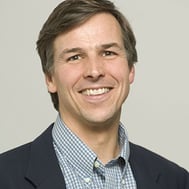
In leadership development, we often talk about reflection, direction-setting, and owning your growth. But before any of that comes the harder question, one that’s more individual than professional:
What do you really want?
This post, a continuation of “Owning Your Career: A Leadership Perspective,” shares a candid story from Insight Experience co-founder Nick Noyes. It reflects the kind of foundational work we believe underpins great leadership, beginning not with management techniques but with self-awareness and clarity of purpose.
Nick picks up from here with a firsthand account of what it took to answer that question for himself.
The Question at the Heart of Career Ownership
Truly owning your career begins with a deeply personal question: What do you really want?
What is success? What does it mean to lead a successful life? For many young people in their 20s and 30s, it’s different from their baby boomer parents. Blame COVID-19. Blame super-achieving parents who put career and financial success above work-life balance. Success today for many looks ... well, different.
But before you think about balance or other measures of life and career success, you should ask the deeper, tougher question of what you really want.
A Decade-Long Search for Purpose
In my own career, I struggled long and deeply with this question. I grew up in a high-achieving family. My father was an investment banker; my mother, a writer. Both influenced me, but my nature gravitated more to the latter. She gave me Lewis Thomas’ The Lives of a Cell, whose central thesis is that every organism has a unique purpose on this earth. She talked about Joseph Campbell and the crucial work of “finding your bliss.”
When my father died while I was in college, that made the question even more acute. What was I to do? Should I follow in his footsteps? Should I continue to try to write? After college, I landed a job in publishing, but after a few years found it was not for me. Then banking for another three. Same conclusion. Then architecture school at night, then real estate, picking up a graduate degree along the way. Close, but not quite right.
It was not until I was almost 34 that I finally found my groove. It took me more than 10 years, but when I found it, I knew I had found my bliss, what I was meant to do. And I never could have predicted it. In fact, it was work that didn’t even exist when I was in college. Once I had found my place, all the other pieces of my life fell into place: work-life balance, material success—at least enough—and deep relationships, both work and personal.
The Leadership Lesson
Why do I share all this? Only as a personal testament to the amount of work and persistence that may be required to answer the question I started with: What do you really want?
Sadly, I have friends who never faced that question. Instead, they chased money and prestige. And they ended up unhappy, unfulfilled. Money could not fill that hole.
If you want to really own your career, start with the hard, deep personal work. You’ll be glad you did.
Career ownership begins with clarity. For leaders, it’s the kind of work that pays off not just personally, but professionally.
* * *
Nick’s story is a reminder that leadership starts with self-awareness and that clarity takes time, intention, and work. If you’d like to dig into that for yourself, take 10 minutes to reflect on the questions below. Better yet, write your answers down. That’s where insights start to take shape.
Reflection questions to consider:
-
When you imagine your “best self” at work, what are you doing? Who are you working with?
-
Can you recall a moment when you felt completely “in your element” at work? What were the circumstances?
-
What skills or talents have you neglected that you’d love to use more?
-
How has your definition of “success” changed over time?
-
If money and status were off the table, what work would you choose to do?

Nick Noyes
Nick Noyes is a co-founder and partner of Insight Experience. He has more than 20 years of experience working with clients on education and strategic change initiatives. His work spans many activities, including the design of simulation-based educational programs, executive facilitation, coaching, and action learning initiatives. In addition to the leadership he provides for Insight Experience and its clients, Nick is responsible for the company’s strategy, business development, and marketing efforts.









